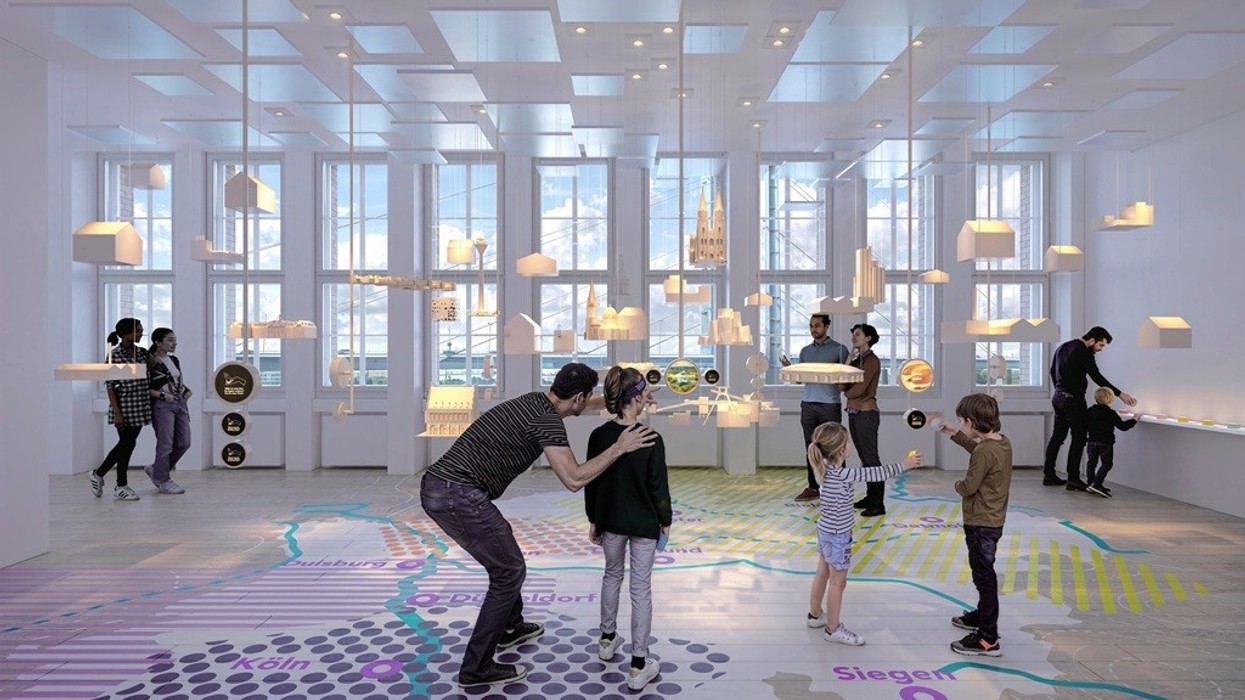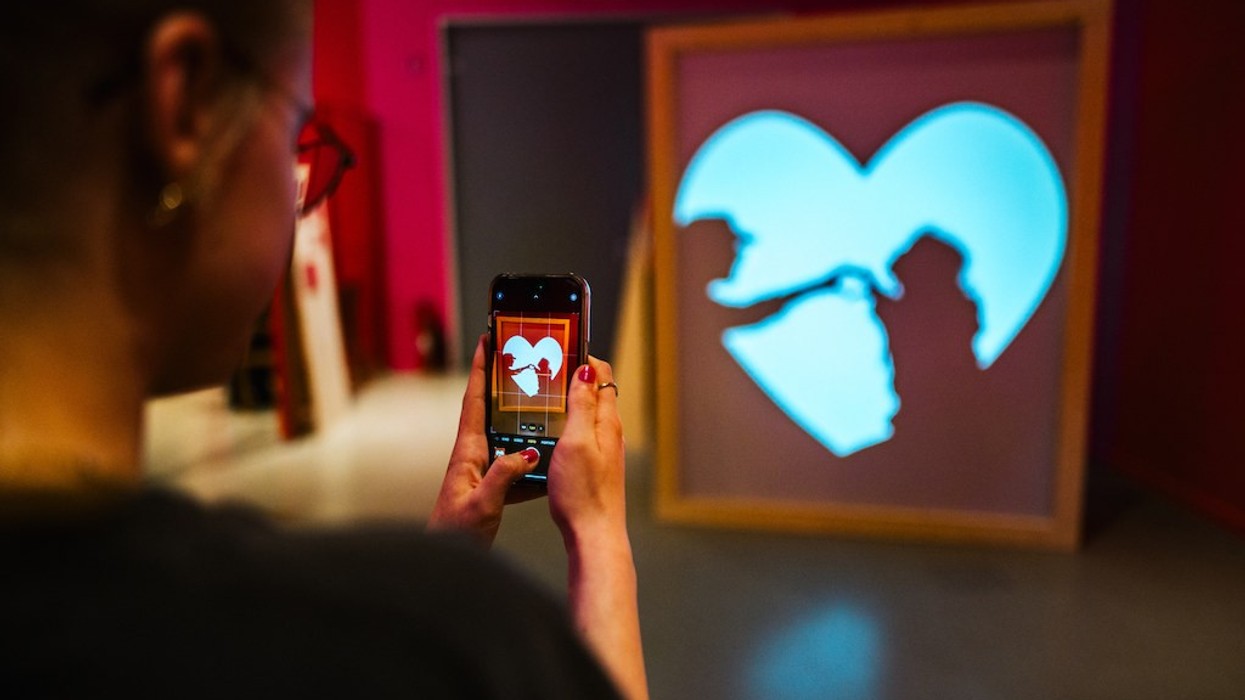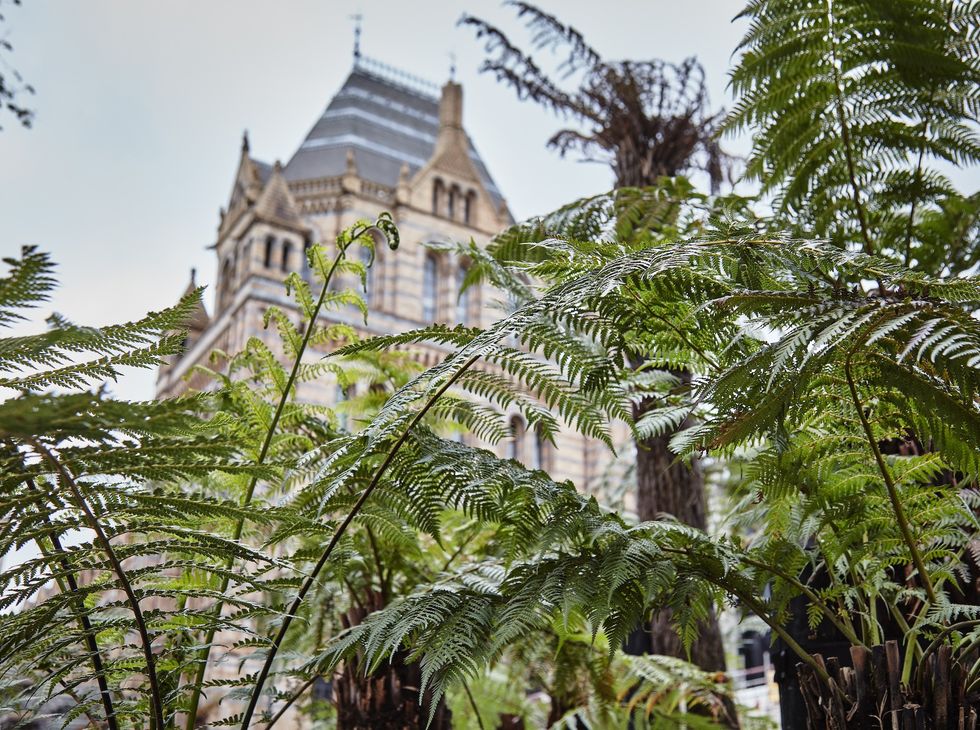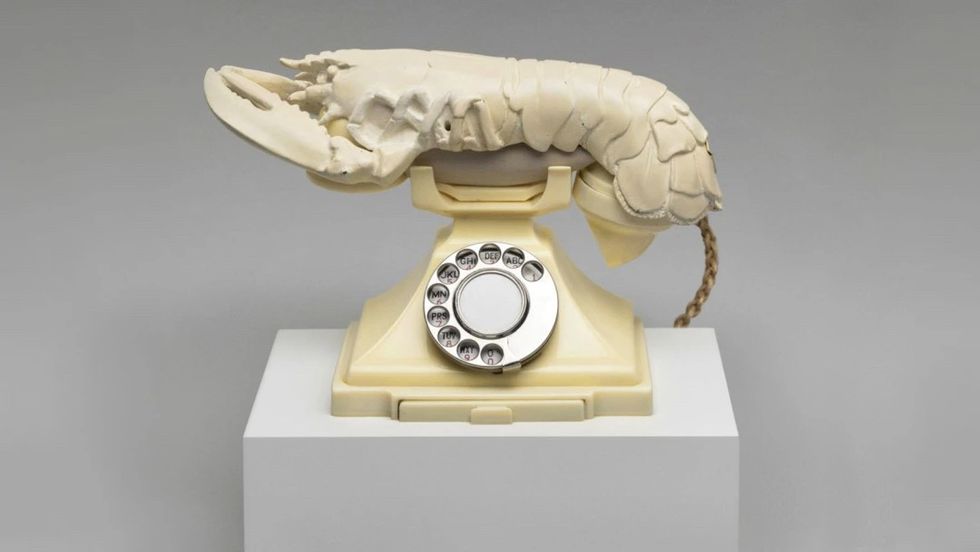Trends such as pet-friendly attractions, retro experiences, and urban immersive venues reflect increasing interest in personalisation, nostalgia, and community connection.
 Refik Anadol's Dataland
Refik Anadol's Dataland
Meanwhile, cutting-edge technologies like artificial intelligence (AI), robots, and drones are transforming the visitor experience.
Theme parks, museums and more LBE destinations are staying ahead by delivering attractions that blend creativity, technology, and thoughtful design to meet guest demand.
Some of our attractions trends for 2026 carry over from last year’s list. Keep reading to find out more.
Pet-friendly LBE

Blackpool Pleasure Beach's 'Dog Days'
Despite a Danish zoo requesting donations of healthy small pets to feed its predators, more visitor attractions are considering ways to include guests with furry friends.
Pet-friendly experiences in theme parks, museums and more are a thoughtful way to include animals in leisure and cultural outings, especially for visitors who don’t want to leave their pets behind.
In the coming years, we expect to see special ‘dog days’ in theme parks, like Blackpool Pleasure Beach’s initiative, and Legoland Windsor’s Paws in the Park programme.
“We know that so many of our guests see their dogs as part of the family, and leaving them behind for the day can be a real worry,” said Amanda Thompson, CEO of Pleasure Beach Resort.
Museums, particularly those with outdoor spaces, are increasingly opening their doors to well-behaved pets. In Italy, museums have been providing a free dog-sitting service to attract more guests.
Other museums are offering dog-inclusive events. Mansfield Museum in Nottinghamshire, England, for example, has hosted dog-friendly cinema evenings and gallery walks.
Health and wellness
 Clinique La Prairie, Amaala
Clinique La Prairie, AmaalaWellness is expanding as a lifestyle trend worldwide, with the wellness economy projected to grow from $5.6 trillion to $8.5 trillion by 2027.
Guests are increasingly seeking new ways to relax and prioritise their health and wellbeing, and visitor attractions are getting it covered.
Take Therme Group, a pioneer in the world of water park wellbeing. The company’s facilities offer thermal bathing, spa treatments, mineral pools, saunas, and wet rooms, along with lush greenery, immersive art, and thrilling waterslides.
And when it comes to theme parks and museums, operators are introducing experiences such as yoga and meditation sessions. Like California’s Disneyland’s upcoming yoga session with Miss Piggy in front of Sleeping Beauty Castle, or Raby Castle’s new wellness programme.
And then there’s destination development, such as Saudi Arabia’s Amaala, billed as an ultra-luxury destination focusing on wellness and healthy living.
A highlight of Amaala is the Clinique La Prairie longevity resort, offering wellbeing services including a cryochamber, hyperbaric suites, and IV infusions.
“Wellness tourism around the world is growing tremendously. It's an exponential growth at the moment. There are more informed travelers today. They want to go to the places that are giving them the best, healthiest options, ” Melisa Pezuk, head of development at Amaala, told blooloop.
Retro experiences

RetroEscapes theme park concept
Stranger Things has come to an end, but demand for retro LBE experiences continues to surge.
Operators in the attractions industry are capitalising on the human experience of nostalgia, which can create emotional bonds and a feeling of shared history between guests.
The trend for retro attractions is mostly millennial-led at the moment, with many 1980s and 1990s brands being transformed into visitor experiences.
Recent examples range from a Teletubbies-themed rave at Area15 in Las Vegas to a nostalgic '90s production on Norwegian Cruise Line ships.
"Area15 is at the forefront of revolutionizing the rave experience by introducing themed events that blend nostalgia, creativity and immersive entertainment," said Noah Kessler, head of entertainment at Area15 (via Fox 5).
And then there are the Donkey Kong Country expansions at Universal parks, inspired by Nintendo's 1981 arcade game, and the planned RetroEscapes theme park. This will immerse visitors in lands themed to the 1950s, '60s, '70s, '80s and '90s.
Luxury destinations

Disneyland Paris' fine dining restaurant
Luxury experiences in theme parks, museums, and other spaces are on the rise, with theme parks in particular no longer seen as mass-market destinations.
Theme parks are increasingly meeting the needs of more affluent demographics, delivering premium experiences, top-end lounges, fine dining and luxury hotels. The new Efteling Grand Hotel, for instance, combines luxury, storytelling and Efteling’s signature fairytale charm.
Elsewhere, Disneyland Paris has opened a French fine dining restaurant serving dishes themed to Disney films, including the poison apple in Snow White and the Seven Dwarfs.
Natacha Rafalski, présidente of Disneyland Paris, said: "At Disneyland Paris, we are always committed to enriching the experience of our guests, and gastronomy plays a vital role."
A trailblazer in this space is Grupo Vidanta’s BON, billed as the world's first luxury theme park and opening at the VidantaWorld Nuevo Vallarta destination in Mexico in autumn 2026.
Museums, meanwhile, can be seen selling status souvenirs and adding design-forward cafés.
Other projects that lean into luxury include Airbnb’s expansion into experiences and services, with the homestay company now giving guests the opportunity to book chefs for their stays, as well as massages, spa treatments, hair stylists, makeup artists and more.
Green spaces

Natural History Museum gardens
Green spaces at visitor attractions are evolving beyond traditional landscaping, as operators seek to provide places for guests to connect with nature while enhancing biodiversity and raising awareness of issues such as climate change.
The Natural History Museum in London attracted more than 5 million visitors to its new gardens in the first year of opening, showing a demand for urban green spaces.
Also in London, Tate Britain has submitted plans for new green spaces and a garden classroom.
Elsewhere, Amsterdam’s Rijksmuseum is investing in a new public sculpture garden.
The Natural History Museum’s gardens have “helped connect millions of people directly to nature and are already providing critical scientific data to aid our understanding of how to support urban wildlife”, said Doug Gurr, the museum’s director.
In the hotel sector, Jumeirah has launched a new destination, Jumeirah Eco Village, at Madinat Jumeirah in Dubai.
Jumeirah Eco Village is a dedicated place to display Jumeirah's initiatives in environmental protection, biodiversity conservation, food security, and responsible production. Highlights include a hydroponic farm and a plastic-repurposing workshop.
Immersive food and beverage

Beak and Barrel at Disney World
Story-driven restaurants, multi-course immersive meals, and expanded F&B experiences are on the up across the attractions industry, as dining evolves from a necessary service into a form of entertainment in itself.
Theme parks are already home to myriad themed F&B outlets, but even Disney is innovating its dining offering.
Aside from Disneyland Paris’ immersive dining experience, Magic Kingdom at Disney World in Florida has launched a Pirates of the Caribbean-themed bar called the Beak and Barrel that extends the iconic ride’s narrative world.
In Germany, Europa-Park’s Eatrenalin is a media-based multi-sensory restaurant where guests are seated on ride vehicles.
A one-of-a-kind pop-up concept called Fork n’ Film recreates dishes from classic films such as Mean Girls, Holes, Beauty and the Beast, Mulan and Alice in Wonderland, and serves them at the exact moment they appear on screen.
“Our parents always told us, don’t play with your food, but we want you to play with your food while you're immersed in iconic films,” said Fork n' Film co-founder Nick Houston.
Allureum, a joint venture founded by Chuck Fawcett and Daren Ulmer, aims to redefine experiential dining and entertainment.
Its first venue, The Gallery, is located in LA and combines a sophisticated bar and restaurant with an immersive dining show.
AI-powered experiences
 AI-powered Salvador Dalí answering visitor questions at the Dalí Museum
AI-powered Salvador Dalí answering visitor questions at the Dalí MuseumThe conversation around AI continues to dominate, and visitor attractions are undergoing a technological transformation, turning to AI and emerging technologies to revolutionise visits.
In the coming years, expect to see more museums and theme parks investing in AI-powered personalised experiences, puzzles and AI-driven characters.
Take the Dalí Museum in Florida, where an AI experience called AskDalí allowed visitors to ask an AI version of Salvador Dalí questions on a phone inspired by the artist’s ‘Lobster Telephone’ (1938).
Other uses in museums include an exhibition created by autistic and neurodivergent young people harnessing innovative AI tools at the UK’s Mansfield Museum.
Elsewhere, the Rijksmuseum in Amsterdam has introduced an AI-powered tool called 'Art Explorer' that allows users to collect and compare artworks in the museum's collection.
Dataland is an AI attraction in its own right.
The world’s first AI art museum is the brainchild of media artist and director Refik Anadol. Dataland's inaugural exhibitions will be expressed through Refik Anadol Studio’s Large Nature Model – the world’s first open-source AI model based solely on nature data.
Dataland will be "on the edge of imagination with AI", Anadol told blooloop.
Robots and drones

Disney's bipedal robotic BDX droids
Robots and drones are both increasingly powered by AI across sectors. Behind the scenes in the attractions industry, the new technologies are carrying out operations, serving as autonomous assistants, or being integrated into ride systems and experiences.
As far as the visitor experience is concerned, guests in 2026 can look forward to roaming robots with autonomous features, like the bipedal robotic BDX droids at Disneyland, or AI-powered bots in museums, for example, Ameca.
"The BDX droids are a big leap forward — not just for robotics, but for how we bring beloved characters to life in the real world," said Kyle Laughlin, SVP at Walt Disney Imagineering's research and development arm.
Guests can also anticipate autonomous drone shows, like a new generation of autonomous aquatic drones that synchronise with aerial drones, developed for Disney by Dronisos, a leading drone light show specialist.
Disney Research is innovating in aquatic robotics too, working to integrate Meta’s Ray-Ban smart glasses into theme park operations and using an AI ecosystem for the Imagineering teams.
Mixed reality

DreamPark
Another burgeoning trend in the attractions business is mixed reality (XR), with predictions including rides and queues that blend real sets and AR overlays, digital characters interacting with guests, hologram experiences, and spatial computing features.
Immersive art company Meow Wolf, for instance, has teamed up with Pokémon Go makers Niantic Spatial to expand its universe via augmented reality (AR).
A similar concept from XR developer DreamPark involves creating the world's largest XR theme park by transforming ordinary spaces into immersive experiences.
"We're reimagining what's possible when the spaces around us become canvases for shared adventure and imagination," said Aidan Wolf, co-founder and CEO, DreamPark.
Within the theme parks field, Six Flags is adding a new layer of spatial AI and extended reality in partnership with Illumix, a technology company specialising in the creation of augmented reality (AR) and interactive immersive storytelling.
Holograms, or digital recreations of people, places and things, are also gaining momentum – from holographic theatres to Abba Voyage. And then there’s Hologram Zoo, which offers a wildlife experience without the need for live animals.
Urban immersive

Netflix House
And last but not least, urban immersive is a trend to watch in the year ahead.
Instead of enormous 100-acre resorts, brands are investing in the development of smaller parks in cities, shorter experiences with content refreshes, and indoor immersive spaces, like Camp’s unique retail concept.
Examples of these low-cost (and sometimes high-tech) attractions include Merlin’s move into immersive experiences in shopping malls and Netflix House venues, which are also immersive experiences in malls but based on the streaming service’s brands.
As well as expanding its major theme park resorts, Universal Destinations and Experiences is in the midst of a smaller-scale expansion plan. Projects include Universal Horror Unleashed venues and Universal Kids Resort in Texas.
"Our focus on expanding the Universal brand to new people, in new places and on new platforms is well underway,” said Mark Woodbury, chairman and CEO of Universal Destinations & Experiences.
















 Refik Anadol's Dataland
Refik Anadol's Dataland 
 Clinique La Prairie, Amaala
Clinique La Prairie, Amaala



 AI-powered Salvador Dalí answering visitor questions at the Dalí Museum
AI-powered Salvador Dalí answering visitor questions at the Dalí Museum










